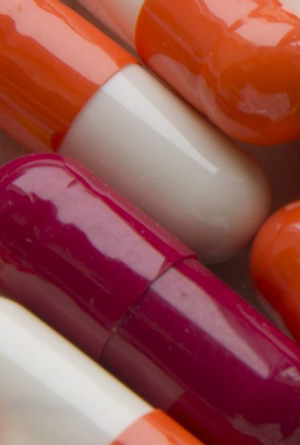A placebo, also sometimes referred to as a sugar pill (though this isn’t really a synonym as the form the of the placebo is flexible), is the name we give to any kind of medication, treatment or system that claims to be able to improve our health or abilities but in fact has no active ingredient. In the case of a sugar pill then, which is more accurately a type of placebo, you are eating a pill made entirely of sugar but believing that it has other ingredients and that it can treat some kind of psychosomatic condition whether that’s anxiety, a phobia or a bad habit. In some cases this goes further and the sugar pill is believed to treat physical conditions or even addictions.
 In order for a placebo to work, it is important for the individual to truly believe that it can – which then brings about psychological and behavioural change that lead to the improvement. In the case of a migraine then, you might genuinely have a headache but be experiencing a worse version of it because you are focusing on the pain and problem tensing up. When you take the sugar pill however, you believe the headache is gone and begin to focus on the positive elements and even forget about the discomfort and therefore notice less pain. This highlights the importance of the ‘brain-mind link’ and demonstrates how much of our behaviour and experiences could be altered if we were able to better control our thoughts (which is the realm of CBT – or Cognitive Behavioural Therapy).
In order for a placebo to work, it is important for the individual to truly believe that it can – which then brings about psychological and behavioural change that lead to the improvement. In the case of a migraine then, you might genuinely have a headache but be experiencing a worse version of it because you are focusing on the pain and problem tensing up. When you take the sugar pill however, you believe the headache is gone and begin to focus on the positive elements and even forget about the discomfort and therefore notice less pain. This highlights the importance of the ‘brain-mind link’ and demonstrates how much of our behaviour and experiences could be altered if we were able to better control our thoughts (which is the realm of CBT – or Cognitive Behavioural Therapy).
In Research
What’s also important to consider is that the placebo effect plays a role in any medical intervention. In other words, when a doctor treats you in any way for any condition, you will always have a psychological reaction on top of the chemical one. This can be a positive thing for the most part, but it does make it difficult for the doctors to monitor how well the drug or treatment is actually working.
This is why all new treatments and medications are normally tested using a ‘control group’ on a sugar pill. This group takes a sugar pill for the same duration that the main study group takes the actual medication but aren’t aware that their treatment is inert. This way, if only the same amount of improvement is measured in both groups, the researchers will know that the treatment was no more effective than the sugar pill alone.
Of course placebos are also used in a number of studies and experiments looking at the power of placebos themselves. A recent televised program by Derren Brown called Derren Brown: Fear and Faith showed how a group of participants on a placebo were able to overcome crippling shyness, phobias of heights and even skin conditions (potentially due to a reduction in cortisol/better sleep?). Derren Brown, the illusionist who presented the program, explains that many of the improvements came about simply because the participants ‘allowed’ themselves to stop acting within the confines of their conditions. By flipping that mental switch they were able to forget about their illogical concerns – imagine what we would all be capable of if we could access these changes ourselves?
Certain elements in the program helped to make the effects more potent also – for instance the presence of an authority figure and the fact that he asked the participants to make a note of all the positive changes they experienced, thus reinforcing the fact that it was working every night and directing their attention in a positive way.
Treatment
The effects of placebos can be far reaching and can impact on a wide range of health aspects. For instance placebos have been shown to be at least partly effective in treating Parkinson’s disease and depression. A placebo can work the other way too, and if you believe yourself to be ill when you aren’t (hypochondria) then a placebo can be an effective treatment that won’t mean ingesting drugs unnecessarily. Children are often given placebos for this same reason, though there are moral issues surrounding their use.
Many health products that are sold in stores, such as homeopathic remedies, actually contain no active ingredients whatsoever and have little or no supporting evidence suggesting that they are effective. Here it could be argued that the placebo effect is the only ‘mechanism of action’ at all, but this doesn’t excuse the dubious morality and miss-marketing of these products and particularly those that claim to combat serious illnesses and conditions. There are some conditions that placebos can’t help.



